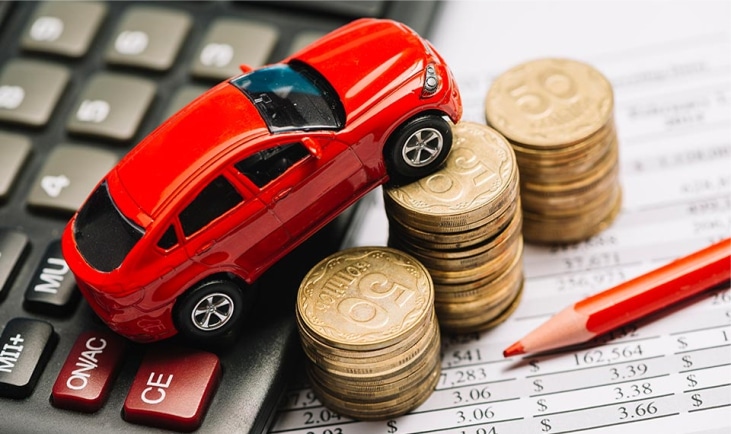Adverts
As well as paying special attention when signing a contract and discussing payments with the seller, it's also important to think about your finances and remember that items and other bills can compromise part of your budget, plus understand how to finance a car correctly without affecting your personal budget.
With so much to organise and discover, it's natural for many people to have doubts about the stages, the cost and even the financing itself.
Adverts
With this in mind, we decided to write this article and provide you with lots of information on the subject. Read on to find out all about financing a car!
What does it mean to finance a car?
Car finance is a highly popular way of acquiring cars on the market. In it, the bank or financial institution transfers the asset and you pay the negotiated amount every month. This means that you don't need to keep the full value of the vehicle in hand when you make a purchase.
Adverts
In many cases, it's also possible to make the number of instalments more flexible in this way. For example, if you have to pay a smaller amount, you can spread the finance over a longer period, always keeping in mind what you can afford out of pocket. Best of all, once you've been approved to finance the car, you can leave the dealership driving the vehicle without having to pay cash in advance.
However, to ensure you choose the best option, there are some basic aspects to consider, such as the increase in interest on instalments and the reliability of the credit institution.
How does financing work?
You can finance a car in two different ways. Check out each one in detail below:
Leasing
In this type of contract, the customer appears to be paying a kind of rent in instalments. In other words, the vehicle is rented with an option to buy. However, the assets are still registered with the financial institution, even though the contract is still in force. The car will only be registered in the buyer's name once the instalments have been paid off.
Direct Consumer Credit (CDC)
In the CDC, the buyer takes out a kind of loan with the institution, takes control of the car, but can't trade it in until all the instalments have been paid. When the contract is created, ownership is in the customer's name.
It's also worth noting that the interest has already been calculated at the negotiation stage and recorded in the contract, meaning you pay the exact amount in instalments until the end of the period, with no nasty surprises at any point.
See also: Find out which score is good for financing and how to achieve it
Documents required to finance a car
- ID;
- CPF;
- Proof of marital status;
- Proof of income (bank statements and/or payslips).
What interest rates are charged?
You probably already know that taking out a loan is subject to rising interest rates. This means that, in practice, a R$ 45,000.00 car at the dealership will not continue to pay the same amount until the end of the term.

The only way to get to the end without the price changing would be to buy the car outright. However, if this is not a viable option for you, the ideal is to search the market for institutions that offer the most attractive conditions. To get lower prices, the ideal is to offer a higher down payment and a shorter term (if possible within your budget).
In addition, other factors are taken into account in this interest calculation, such as:
- The policy employed by the institution.
- The customer's credit score for security services.
- The year of the vehicle to be financed, remembering that the vehicle cannot be more than 10 years old after it was manufactured.
If you have a high credit score (indicating that you are a good payer), the bank understands that you are less likely to be bad. Interest rates therefore fall, for example.
Apart from interest rates, is anything else paid?
When a car is financed, other payments that exceed the interest rates are added to the instalments, but these are not so well known to the general public. We explain each one in more detail below.
IOF
Financial Operations Tax is a tax levied on financing transactions. It is levied once at 0.38% of the amount financed and then at an annual rate of 3%. It's important to note that the bank receives the IOF, but passes it on to the government.
Liens
This refers to the registration of the financing with the Traffic Department (Detran) of the state where the vehicle was purchased. This registration states that the car is alienated and will not be sold until it has been paid off in full.
The payment is included in the interest and once the financing is finalised, the registration can be cancelled.
TAC
TAC stands for Credit Opening Fee. The institution determines the amount to be charged and the aim is to review customers' credit information for possible credit restrictions.
Financial Protection Insurance
It helps protect the buyer against the loss of the car in cases where the instalments cannot be paid (as in the case of unemployment). When this happens, this insurance is used to cover the value of some benefits.
The bank must make it clear that the fee will be charged and the consumer can refuse the fee. On the other hand, the institution can prevent the credit transfer.
CET (Total Effective Cost)
The Total Effective Cost, as the name suggests, is all the costs related to financing the car - i.e. interest, liens, TAC and insurance. The institution responsible for granting the credit usually tells you what the CET of your financing will be.
As the name suggests, the Total Effective Cost is all the costs associated with financing the car: interest, liens, TAC and insurance. Depending on your profile, the credit institution will usually tell you what the CET will be for the loan you want.
What should I do before financing a car?
You may be looking to find out how to finance a car without restrictions, right? Before you even think about committing to a mortgage, you need to be careful. Review the following tips to help you plan effectively for this situation.
Analysing your finances
Car finance can take a certain amount of time, up to 4 years, depending on the amount (and number) of instalments you pay. This means that throughout this time you will have to pay off this debt every month, which will jeopardise your personal (or family) income.
So before "sticking" to a commitment, analyse your financial situation and see what the average amount is that you can pay without making a loss. Remember that this figure should also include expenses such as fuel, maintenance and insurance. In this case, the acquisition of goods not only results in the payment of instalments, but also a higher amount.
To make this easier, it's a good idea to create a spreadsheet (using a laptop or mobile app) that allows you to list all your income and expenditure. This makes it easier to see how much of the budget is tied up in paying bills.
Another issue to consider is the existence of restrictions on people's registration. If you have a "dirty name", you are unlikely to get a loan and, if you do, it will probably be higher. If so, proceed to problem-solving and only then plan to buy the car.
Pay all your bills on time
By analysing your finances, you can better visualise your expenses and how they will affect your budget. Evaluate all your commitments, see what the impact is on your income and, if it's big, start analysing a few things.
Paying off some debts will be prioritised to free up payment space and avoid car financing being another issue to deal with in the future, especially if the risk of damage and default increases.
On the other hand, if you feel comfortable completing the items, go ahead. However, take precautions if something unexpected happens. An emergency reserve is an excellent ally in these times, as it helps to keep this expense at bay for a while.
Reduce unnecessary expenses if necessary
If you discover that your budget situation is not very favourable for financing, you can implement a new strategy to improve conditions (in addition to keeping your bills up to date).
In this case, it is necessary to review all costs, identify unnecessary ones and assess how reductions or cuts can be made. Are you really using the full cable TV rental package? Wouldn't it be interesting to cook at home instead of eating out every weekend?
With a few simple changes, you can save money at the end of the month without having to sacrifice your well-being and quality of life. Believe me: this will bring you even closer to the car of your dreams, while doing your financial health a huge amount of good.
Decide on the best instalment that fits in your pocket
When you start keeping track of your budget, it's easier to identify the ideal amount for your next financial commitments, so you don't run the risk of getting into debt with creditors.
From there, the decision-making process becomes simpler and more straightforward, and you can negotiate with the financial institution, which is the biggest cost you can absorb on a monthly basis. This directly affects the number of instalments and interest rates. Remember once again that you must take into account the other expenses that the car brings to your routine.
If you're still not sure about finalising the negotiations, do a little test. Take about 3 months to save the estimated amount and see if you adjust your finances or if the plans can easily continue.
Make a deposit on the car
Institutions usually charge a participation fee for car finance. You should therefore be aware that you won't be able to negotiate the entire instalment. If 20% is required and the car costs R$ 35,000.00, R$ 7,000.00 will have to be paid to release the credit, in this case the down payment.
But if you can pay more, even better. It helps to reduce the amount to be financed and thus reduces the interest paid, increasing the flexibility of the cost and time of the instalment.
There are institutions that also offer better conditions for these cases, because the higher the down payment, the greater the certainty that you will receive full payment for the property you are financing.
Therefore, if you don't have this amount yet, the ideal thing is to make some kind of savings and gradually increase this amount, at least until you reach the minimum limit requested by the bank.
Do your research in different dealerships and used car centres
Prices can vary greatly between retailers. It is therefore advisable to do some research before cancelling your contract. Visit the shops, check out the terms, negotiate with the salespeople and only then will you be able to conclude which is the most favourable offer that fits your pocket.
Remember that you can also negotiate directly with the seller. Just make sure you enlist the help of a trusted mechanic to assess the condition of your car and check for repairs (which could help you get a bigger discount on the price).
With such simple steps, you can save a lot of money.
Select the vehicle you want
You definitely have the car you wanted to own. Have you stopped to ask yourself if you can afford it (and all the costs associated with the purchase, such as MOT, insurance and maintenance)? This topic should also be part of your planning and decision-making, especially when it comes to financial supervision.
So carefully examine which cars are in a price range that you can afford without too much trouble; there's always one with a lower price that fits your budget, right?
Consider buying a used car
We know that new cars cost a lot more than used ones, right? So, have you thought about buying used cars to save money and improve your financial situation?
Depending on the simulation, you could even get a better, more comfortable model for a price that corresponds to what you would pay for, say, a more basic 0 kilometre.
In addition, it's important to take into account the large devaluation that a new car will suffer in the first few periods. This weakens purchasing power when trying to change the financing once it has been finalised - this is not the case with used cars, which have a fixed and more uniform price over the years.
Search for the best financial institution
Once the negotiations are well underway (either through a car dealership or a semi), it's time to look for a bank that offers the best option for financing the car.
Do some market research, contact the managers and see what conditions they offer their customers. This information can also help you get the benefit of cancelling the contract.
Remember to assess the bank's reputation in the financial market and, above all, what the procedures are regarding financial activities, including the documents required and interest rates on instalments.
How do you simulate financing?
With the financing simulation, you get to know the payment conditions and estimate how the value of the items will affect your finances. This is done before moving on to credit analysis and allows you to reorganise your plans if, for example, the instalment is higher than expected.
This analysis takes into account various data, such as:
- Total value of the vehicle;
- Number of instalments to be paid
- Interest and other embedded fees.
The salesperson himself can carry out this simulation with the dealership and provide you with the information immediately. However, if you want to do it yourself, you can also calculate and arrive at the estimated value of the instalments.
If you don't know much about calculating interest or don't do maths very well, don't worry. There are online tools that can carry out this simulation quickly and easily, depending on the information you include.
What is taken into account when analysing credit?
Financing will only be approved once the customer's credit analysis has been completed. This process makes many people tense and raises doubts about the criteria used. See the information below.
Personal details
This is the first information collected about the buyer's profile. The information requested includes:
- Full name;
- Date of birth;
- ID and CPF numbers;
- Full address;
- Information about spouses and children;
- Telephone;
- E-mail;
- Profession;
- Company;
- Income information.
Depending on the institution, you will also be asked for the telephone number of the people who act as references. They can be contacted to confirm some of this information.
Registration with credit protection agencies
The institution will also consult organisations such as SPC e Serasa to check outstanding payments, payment profiles and ongoing renegotiations.
The fact that you're already registered on one of these databases doesn't mean that there are any obstacles to obtaining finance. The problem is when this happens repeatedly and there is information that you are not a good payer.
Confirmation of the information provided
If the protection agencies' analysis is favourable, the institution will confirm the personal data you have provided. In this case, they may call the company listed as your employer to confirm that you are a member of staff and that your income has been reported.
Detran enquiries
According to the credit policy approved by the bank, it is possible for it to make some enquiries at the city's Detran to check whether the taxes are being paid correctly or if there are any outstanding issues.
How to finance a car: Step by step
Now that you have a better understanding of how to plan and organise, here are some tips to help you better understand how your car is actually financed.
Send the documents to the selected institution
Sign a proposal containing all the information about the sale and take it to the institution you have selected to finance the car.
Wait for the credit data to be analysed
After submitting the proposal and documentation, the bank carries out an analysis to assess whether the financing is in line with the client's financial situation. The documents required for credit analysis include:
- Driver's licence or identity card (RG);
- Proof of current address;
- Proof of income (bank statement or payslip).
This applies both to purchases made directly with the seller and those made at dealerships.
Sign the contract
If the proposal is approved, it's time to sign the agreement. But make sure you read and check all the information first, as well as understanding all the terms. Only then can you guarantee that you'll get a great deal.
Receive the credit
Once all the steps have been completed, the seller will receive a refund of the payment for the vehicle, deliver it to you and you can start using it. The fees are usually paid next month.
Understanding how to finance a car goes far beyond understanding the bureaucracy of the process. As you can see, there are a number of other things to consider, especially when it comes to your personal budget and ensuring that your financial health is maintained.
Do you have a low credit score?
But if your score is still not what you expected, you can increase your score with a few simple tips. For those who don't know it yet, the Top Score Method is the best way to increase your score in a short time, in a safe and reliable way.
Without a doubt, the personalised support, the quality of the lessons and this super guarantee make it stand out, the best brazilian course to increase your score.
Get to know the Top Score Method:
I WANT TO KNOW THE METHOD
Low Credit Score: The credit score is a key factor in the approval of any financial service with the bank, so it's essential to have a high score in order to be approved straight away.
Do you have a low score and can't increase it? Here's the solution for you.
INCREASE MY SCORE



